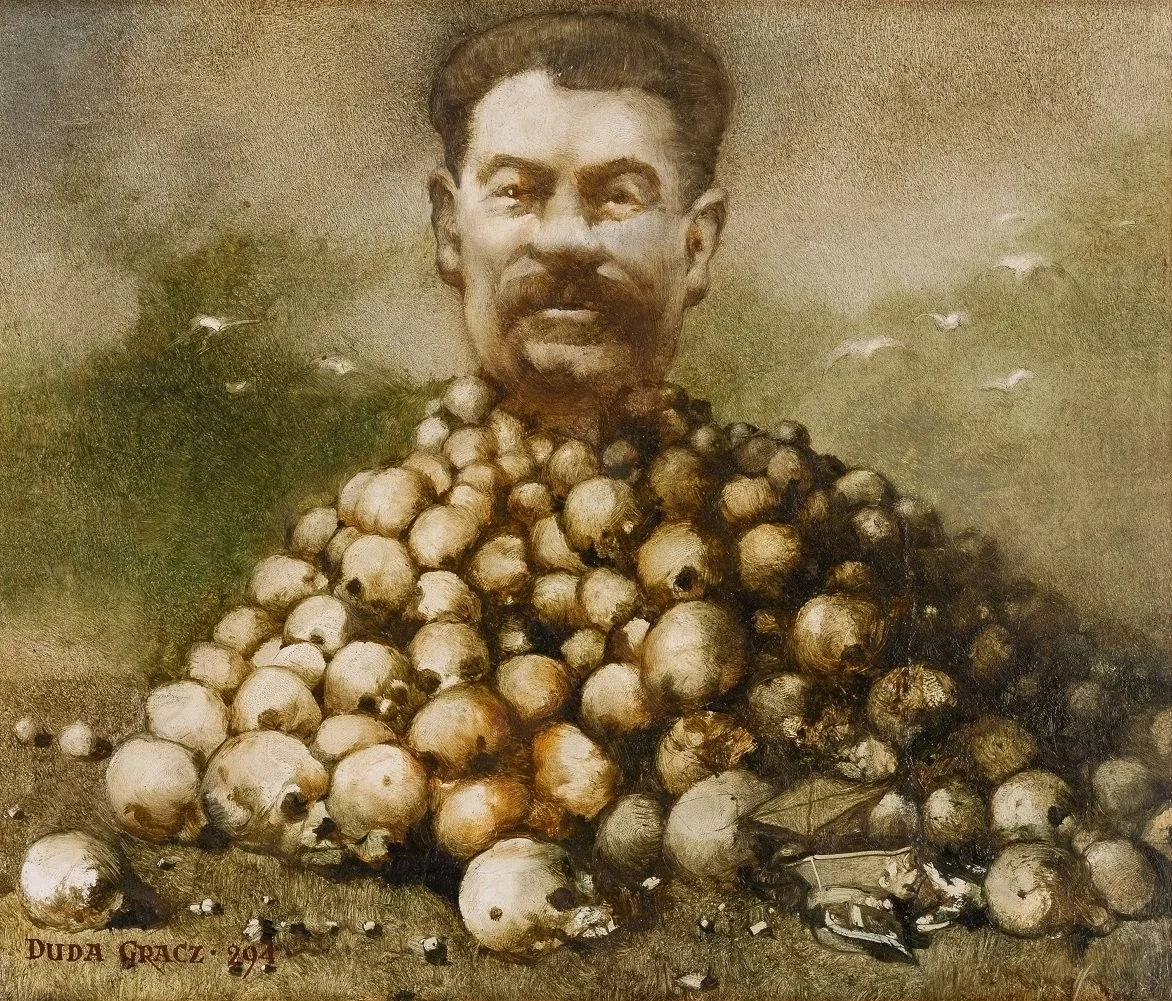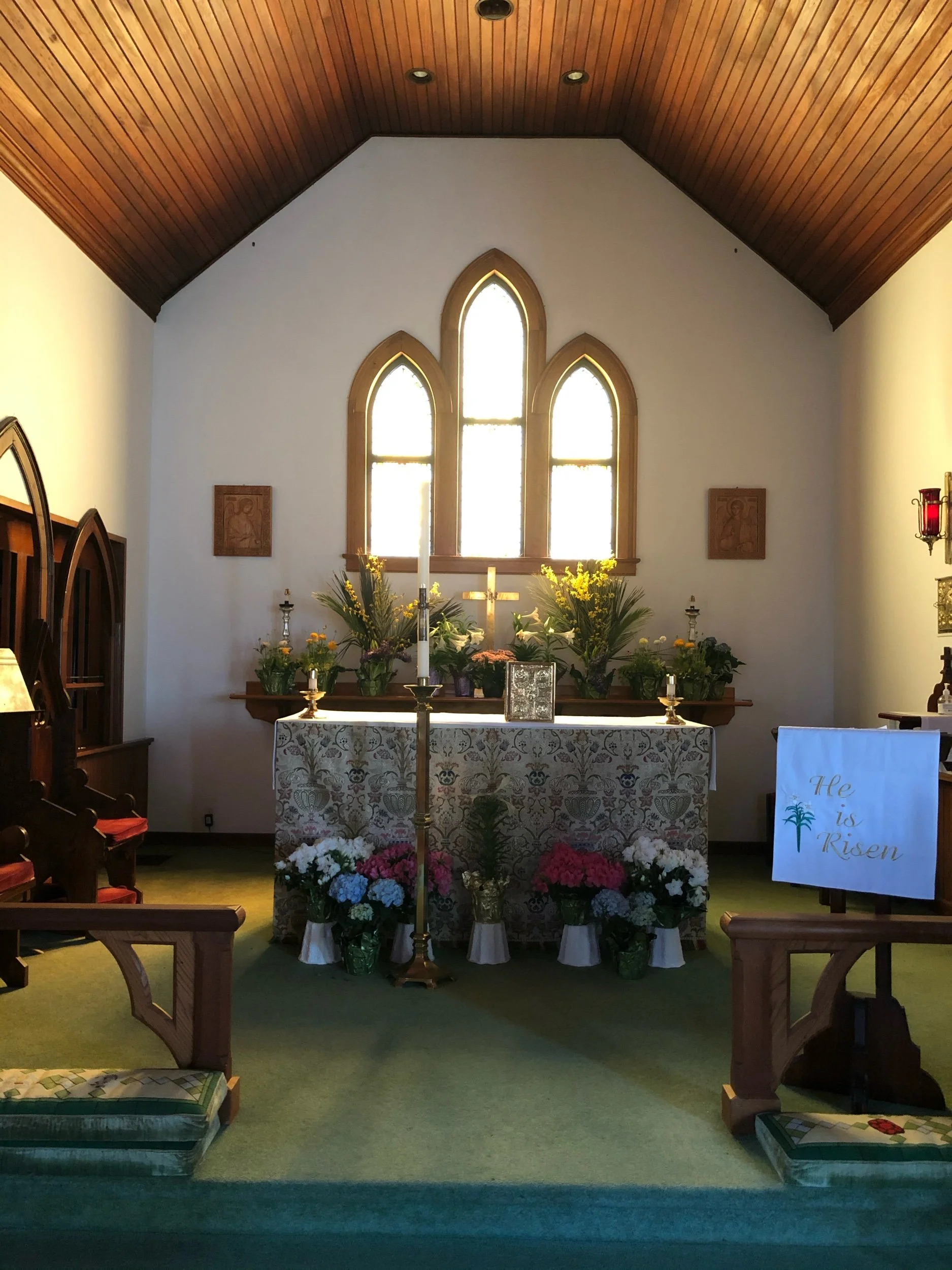The War on Ukraine: Two Thoughts
“Apotheosis of Peace" by Jerzy Duda-Gracz; source: Polish Masters of Art (Facebook)
by Piotr J. Małysz
Beeson Divinity School
Samford University
Covid-era travel has been both precarious and full of unexpected opportunities. Jumping at one of those last fall, I purchased my ticket to travel to Poland in time for my mother’s 70th birthday in March 2022. Of course, once the time came for me to fly out of Alabama, the world had changed. And it wasn’t a matter of lockdowns, masking, or other pandemic-related restrictions. It was a matter of war—all of a sudden raging rather discomfortingly close to my family home.
On arriving in Kraków, I was curious how visible the change would be. Poland, to be sure, had seen a steady stream of migrant workers from Ukraine, filling in the vacuum left by the Poles that had moved west since Poland’s accession to the European Union in 2004. But now things were different. My two-hour drive from the airport to the mountain resort of Ustroń, where I had grown up, put me side by side with a number of Ukrainian vehicles, loaded up to the gills with all and sundry. As I were to learn, those were the lucky ones who managed to escape the war in Ukraine and cross the border in their own cars. The evening news brought images of women, often with children in their arms and by their side, crossing the border on foot, a single suitcase in tow. What does one save, I kept asking myself, from a life that once was, besides the people one loves, or even complete strangers, all of those who will once bear witness? What would I save—to witness, perhaps painfully, to a life now gone?
Now we are well over a hundred days into what increasingly appears to be a protracted conflict with only a pyrrhic victory on the distant horizon. But two thoughts repeatedly come to mind, just as they first did some three months ago. They are surely inadequate to hover over, and somehow claim to be the measure of, the ravages, both physical and personal, that the war has exerted on Ukraine. Nor are they adequate to the devastation the war has brought to Russian society, not only in the loss of life but also the loss of the good life and its concomitants: truth, freedom, hope, and community. But reckon with the distant conflict we all must, whether we want it nor not. Inflation, shortages, migration, anxiety cannot be kept at arm’s length in today’s world. Wrapping our minds around what’s going on is hardly the point; being disturbed seems more like it.
I had the first thought back in late February, just as I was embarking on Barth’s Romans with my students. It has to do with the jolt to the system the Ukrainian war has proven to be. In Putin’s mind, the war was to have been over in a matter of days, and now we, too, would like for it to be over, with Ukraine victorious both morally and politically. But it stubbornly and hopelessly keeps going on. And what we cannot comprehend is not only the fact of a war under false pretenses and against a sovereign nation, and all that in the heart of 21st-century Europe, but the sheer senselessness and raw cruelty of it all. Perhaps this is our way of experiencing what Barth’s generation experienced as they puzzled over how civilized Europeans could be capable of the sophisticated barbarism of World War I. For our part, we, too, might be wondering what’s happened to the voice of Dostoyevsky and the sound of Rachmaninoff, themselves, it seems, casualties drowned out in today’s unadorned realpolitik. As for me, I am personally reminded of Bulgakov’s Master and Margarita, in which Satan visits Moscow, paradoxically, to bring solace and some levity into the inhumane grimness of life under Stalin. Confronted with the positively devilish reality of Soviet life, Satan cannot but appear all too humane and out of this worldly. Humans have an uncanny capacity to out-devil the devil himself! The Russians are proving that yet again.
This brings me to my second thought. The genius of Lutheran theology lies in its notorious refusal of optimism about our own capacities. “Thank God, I am better than …, or that I perhaps could be better than … if I did my best” is a sentiment patently out of character for Lutherans. But even Luther, despite his legendary skirmishes with the devil, had not probed the darkness of our nature the way another Lutheran did. When I think of Vladimir Putin, speculative as even the expert assessments of the Kremlin Butcher have been, I am reminded of Søren Kierkegaard’s account of the demonic personality. There is something frighteningly coherent and unbelievably sinister about a person who cannot admit wrong and accept forgiveness. Such a person must for, the sake of personal wholeness, persist in evil, even when it is recognized as such. All that in order to be at one with him- or herself, and yet with each day gone by more and more of a wraith.
Today, as I still eagerly pursue news of the war each day, and as I still shake my head for lack of adequate words or even thoughts, I think back to the small gestures I witnessed back in March. A guy who traveled all the way from Barcelona to set up a soup kitchen for the women and children crossing the border into Poland; a couple from the Netherlands who brought their RV to the border and turned it into a baby changing and feeding station; and the many Poles who offered hospitality to the refugees bringing them under their own roofs. We humans are certainly capable of out-devilling the devil. But as Bonhoeffer once remarked, amidst the grimness of his own time, God has already put his hand on the world and will not let go. The Lutherans have always been about that, too: the Good News of God in Christ among us and what it makes possible.
This mediation, by Lutheran Forum’s co-editor, first appeared in the summer 2022 issue of the Lutheran Scholars’ Network Newsletter.




